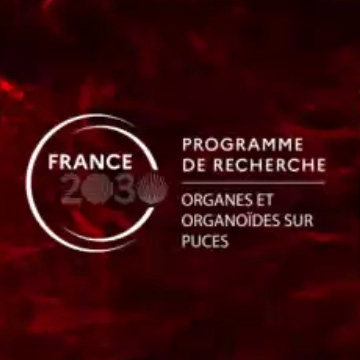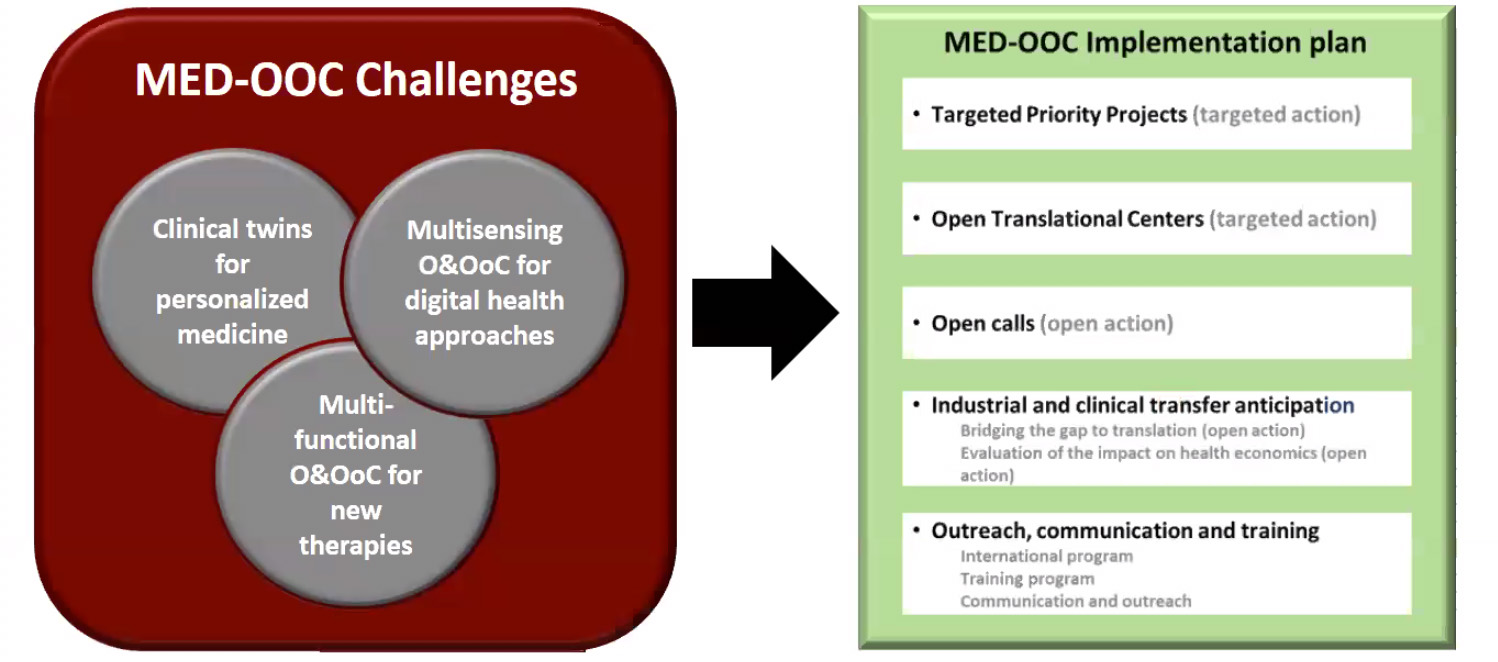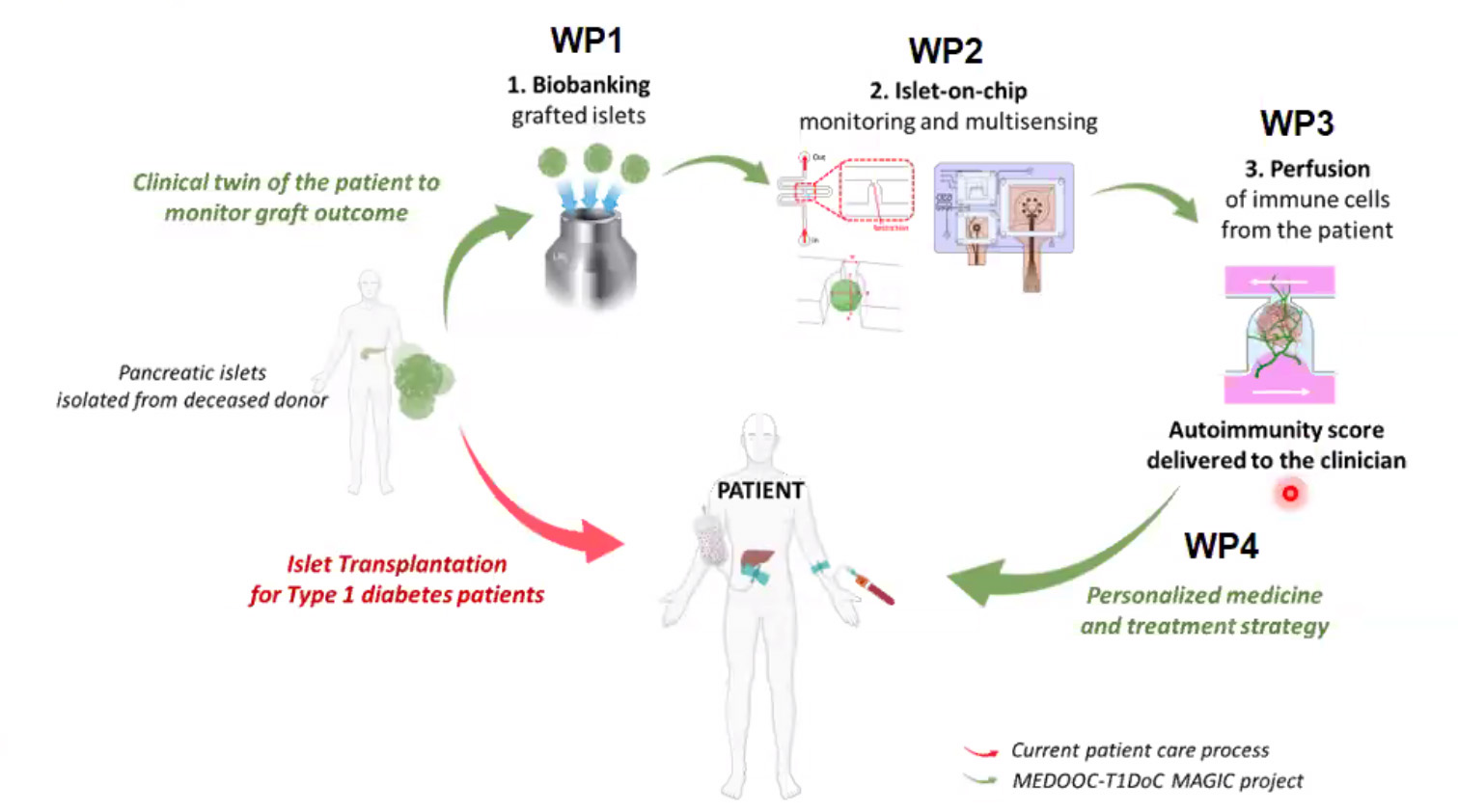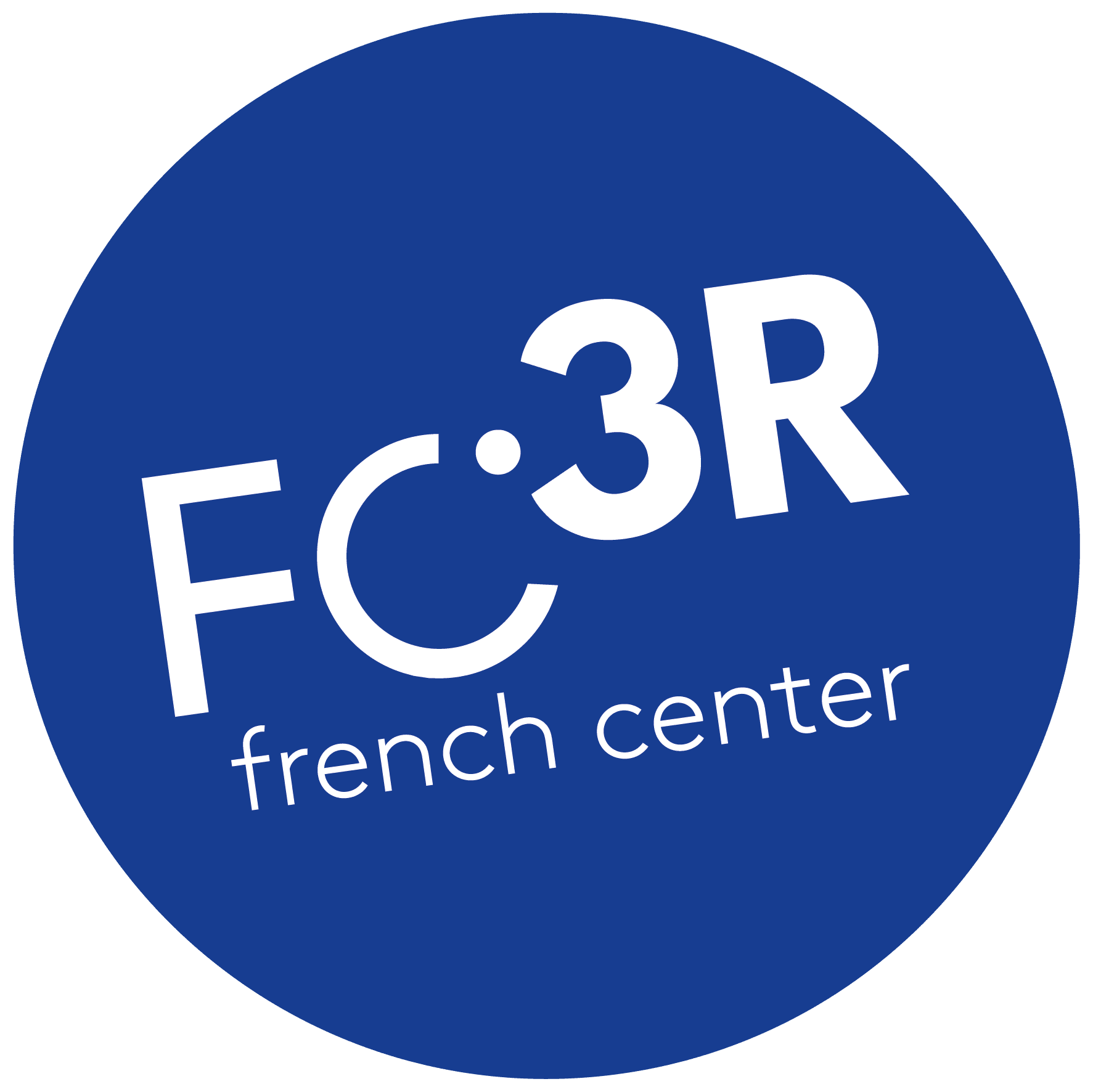

BioValley France, France Biotech, and Netri announced on April 4, 2024, the creation of a strategic sector contract on organoids and organs on chip in France. Read the press release (in french)
On Monday, April 29, 2024, the French scientific community reached a major milestone with the presentation of the PEPR (Priority Research and Equipment Programs, France 2030) Organs and Organoids on Chips, named MED-OoC. This consortium, co-directed by Xavier Gidrol of CEA, Jean Rosenbaum of Inserm, and Anne-Marie Gue of CNRS, aims to establish an ambitious program to develop personalized medicine through innovative and revolutionary approaches centered on organs on chip (OoC).
Highlighting the colossal challenges posed by current drug production costs and the need for sovereign production in the face of supply disruptions—such as those observed during the Covid-19 pandemic—the consortium emphasized how the emergence of new biotherapies and the growing need for personalized medicine urgently call for the development of more relevant biological models for patients (“clinical twins”). Organs on chips represent a significant advancement in this field. By creating controlled microenvironments, these devices can model physiological functions and/or biomechanical properties of organs without necessarily seeking to replicate them exactly. As an alternative to traditional animal models, these approaches also have the potential to significantly reduce the use of animal testing.
The six-year, 48-million-euro PEPR MED-OoC aims to promote the emergence of a new generation of OoC around three main challenges:
-
“Clinical twins” developed from patient cells,
-
Multi-organ chips and multifunctional organoids on chips,
-
Multi-sensing chips to measure various parameters (chemical, physical, etc.) for a better understanding of normal and pathological biological processes.

This multidisciplinary program will mobilize all French expertise to facilitate the transfer of discoveries from the laboratory to the patient’s bedside. It will include five distinct approaches:
-
Four targeted collaborative projects (detailed below), selected in 2022 for their ability to meet clinical needs and reduce animal testing.
-
The establishment of translational structures to foster collaboration among patients, clinicians, researchers, and professionals.
-
A call for projects to fund about twenty innovative and disruptive projects with approximately 1 million euros each.
-
Specific support to accelerate the transfer of discoveries to the clinic and evaluate the cost and impact of these new approaches on public health.
-
An educational program to train future generations of scientists, including international exchanges and collaborations with renowned researchers.
The presentation of the four initial targeted projects by their leaders illustrated the diversity of potential OoC applications, from tumor modeling to understanding metabolic syndrome, monitoring pancreatic islet transplants, and tissue engineering:
-
"Tumor on chip" (Stéphanie Descroix, Institut Curie) aims to develop clinical avatars based on patient-derived tumor cells, leveraging data to personalize and optimize treatments considering the complexity of the tumor microenvironment.
-
"MAGIC" (Fabrice Navarro, CEA, Grenoble) allows monitoring and managing pancreatic islets transplanted in patients with autoimmune diabetes, using chips to understand molecular mechanisms and improve the management of complications related to this pathology.
-
Cécile Legallais from the University of Compiègne leads a project on "Metabolic syndrome," developing liver-on-chip models to better understand and stratify patients with fatty liver disease, replacing animal models and validating these models by comparison with patient cohorts.
-
The "Microenvironment engineering & imaging" project (Audrey Ferrand, Inserm, Toulouse) involves creating a library of biocompatible hydrogels and developing tissue-on-chip models integrating advanced technologies (microfluidics, sensors, high-resolution imaging) to characterize the mechanical properties of tissues, particularly in colon-on-chip models, microbiota, and pancreatic cancers.

The schedule anticipates the launch of the first call for projects in early 2025, marking the beginning of a new era in French medical research. The PEPR MED-OoC paves the way for more precise, effective, and patient-respectful medicine while strengthening national sovereignty and reducing animal testing.
For more information, don’t miss the PEPR MED-OoC consortium webinar organized by the FC3R on December 12, 2024!
